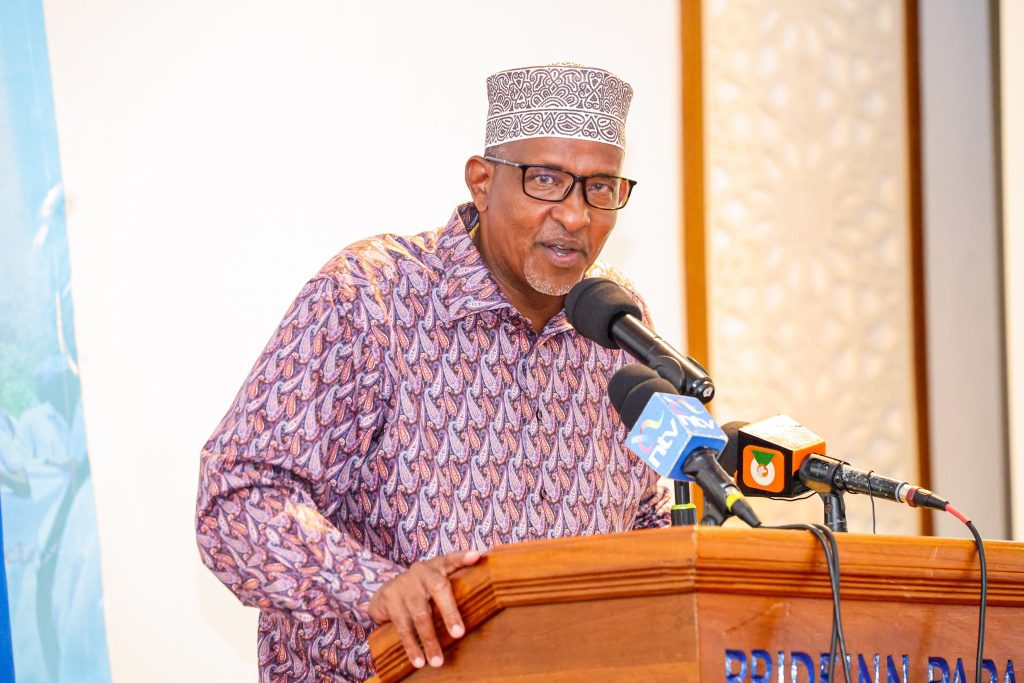In the shadowy underbelly of international athletics dreams, a desperate question echoes: what happened to the Kenyan athlete tricked into the Russian army? Evans Kibet, a 36-year-old long-distance runner from Iten, Kenya’s famed high-altitude training hub, chased the promise of a coaching gig in Moscow last July, only to tumble into a nightmare of deception and war.
Lured by a sports agent via WhatsApp with visions of mentoring young talents and steady pay cheques, far from the financial struggles that plagued his 16-year career in 10K and half-marathon circuits, Kibet signed Russian-language documents he couldn’t read.
What he thought was a work visa extension morphed into a binding military contract, stripping his passport and thrusting him into Russia’s chaotic recruitment machine amid the Ukraine conflict.
His tearful plea in a brigade-released video, “I will die there,” has ignited global outrage over human trafficking in sports migration, as he is now a prisoner of war in Ukrainian hands.
Kibet’s story begins in the dusty trails of Elgeyo Marakwet County, where running isn’t just a sport but a ticket out of poverty. A father to an adorable daughter, he’d notched modest wins in regional races abroad but battled injuries and sponsorship droughts, scraping by on odd jobs back home.
“I love running; I love running,” he repeats in the footage, his voice cracking under the weight of betrayal. Arriving in Russia as a tourist, his visa teetered on expiry when the agent dangled salvation: “Sign here for the job, stay longer.”
Blind to the fine print, sans translator, Kibet inked his fate, joining a brigade of unwitting foreigners: Nepalis, Cubans, even Tanzanians, all funnelled into Putin’s foreign legion for the Ukraine frontlines.
After a week’s frantic “training,” mostly sign-language weapon drills, he was shipped to Kharkiv’s Vovchansk sector, dodging drones and artillery with fatigues that mocked his track spikes.
A Kenyan athlete, Evans Kibet, went to Russia looking for a running gig but on arrival he was sadly tricked into joining the Russian Army after signing some documents.
— Don Bull (@mainandegwa232) September 30, 2025
Mans was sent to war but ran fast & surrendered to the Ukraine Forces who have imprisoned him. pic.twitter.com/E9AtxtodtB
The betrayal deepened in the trenches. “I’ve never been in the military, never wanted it,” Kibet confesses, describing threats of death for deserters and orders barked in a babel of tongues.
On his first patrol, pushed into fog-shrouded forests with scant ammo, survival instincts, honed by years of pacing marathons, kicked in. He bolted, shedding his uniform over two harrowing nights of evasion, whispering, “I’m Kenyan, don’t shoot,” to shadows.
Stumbling upon Ukraine’s 57th Separate Motorised Infantry Brigade, he surrendered, trading one captivity for another. Ukrainian captors provided food, water, and the video platform, calling it consensual.
What happened to the Kenyan athlete tricked into the Russian army spotlights a grim pattern: Russia’s aggressive poaching of 30,000+ foreigners yearly, often via visa scams, as reported by Ukraine’s prisoner spokesperson Petro Yatsenko.
Back in Kenya, shock ripples through athletics circles. Kibet’s brother, Kipyego, told the media the family clung to relief; he’s “safer with Ukrainians than Russians,” but anguish festered over his daughter’s pleas for Dad’s return.
Friends from Iten’s training camps, where legends like Eliud Kipchoge forged empires, decry the lure of overseas “opportunities” turning toxic. Kenya’s Foreign Affairs PS Korir Sing’oei confirmed probes into three or four similar cases, with the Moscow embassy liaising for repatriation.
Nairobi police recently busted a trafficking ring in a dawn raid, seizing fake job letters and passports from a Nairobi cell peddling Russia “gigs” to 20+ rescues.
This saga unmasks broader perils in athlete migration from East Africa. With unemployment gnawing at 7% nationally but youth joblessness at 15%, promises of European or Asian coaching roles dangle like finish-line tapes.
Vigils in Eldoret combine prayers and policy demands, transforming a man’s struggle for survival into a powerful rallying cry. His brigade captors, in a rare humane touch, let him keep his running top, a symbol of stolen dreams.
Will swift intervention bring him home to lace up for peace runs or prolong his limbo? In Eldoret’s misty mornings, coaches now warn protégés: chase tracks, not traps. What happened to the Kenyan athlete tricked into the Russian army isn’t an anomaly; it’s an alert for a generation eyeing borders.















